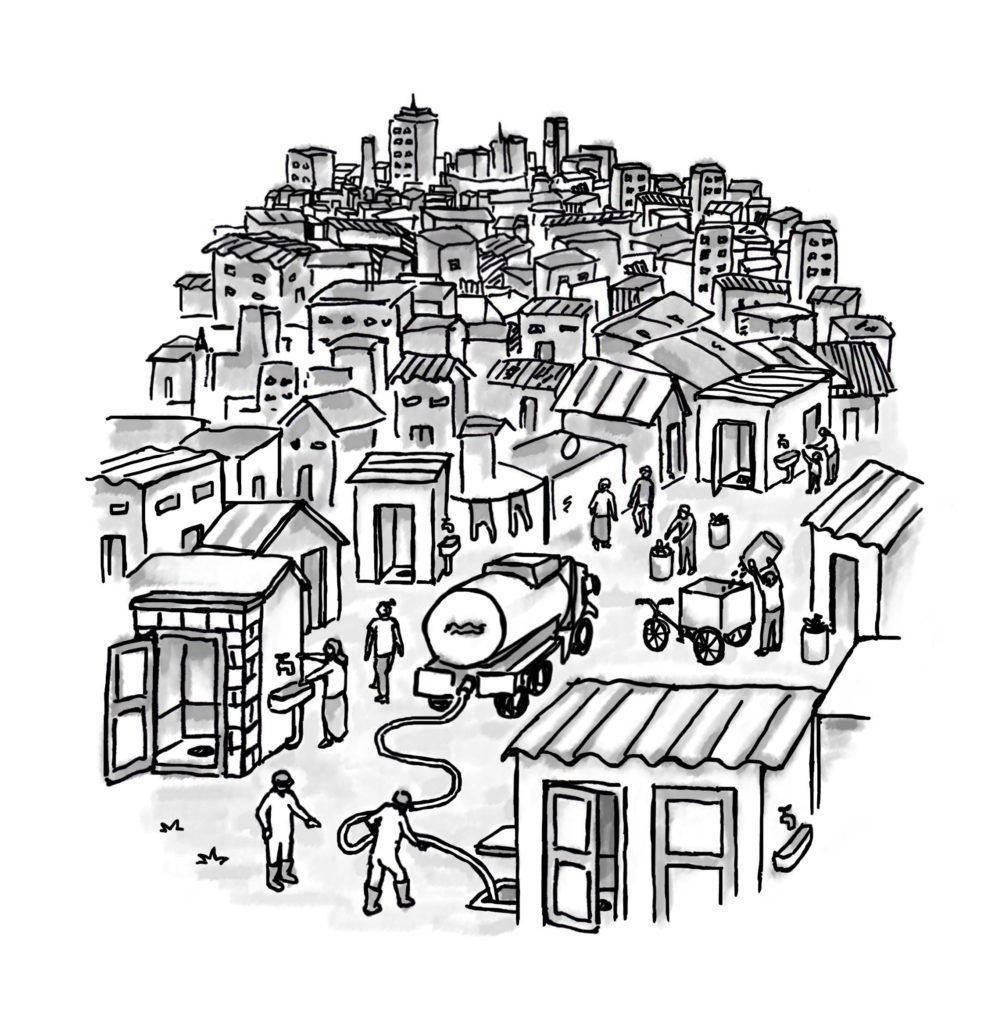The size and number of cities is growing rapidly across the world and by 2050 it is estimated that 68 per cent of the world’s population will be urban. This brings with it challenges for ensuring that all residents have access to basic rights and services – like sanitation.
Until recently, projects in the sector were largely infrastructure-driven (sewerage and treatment plants). These tend to benefit a small, well-off minority.
It is important to ensure safely managed sanitation for all through mechanisms that suit various conditions like on-site sanitation, a robust faecal sludge management institutional and regulatory framework, appropriate access to individual and community toilets and access to clean water at affordable rates.
The urban sanitation sector has recently seen a paradigm shift with Citywide Inclusive Sanitation (CWIS). This approach aims at ensuring equitable, inclusive and sustained sanitation service outcomes at the city level, and safely managed sanitation for all across the sanitation value chain.
It moves away from framing urban sanitation issues from a wholly infrastructure perspective and instead focuses on promoting institutional reforms, a long-term vision for urban planning and technological innovation.
It calls for increased political will and advocates for systems thinking and leadership in the urban sanitation sector to ensure that everyone benefits from sanitation service access, delivery and outcomes.
However, CWIS faces challenges with equitable service delivery, appropriate public-private collaboration and ensuring regulatory services ensure efficiency and affordability to ensure safe and sustainable sanitation.







